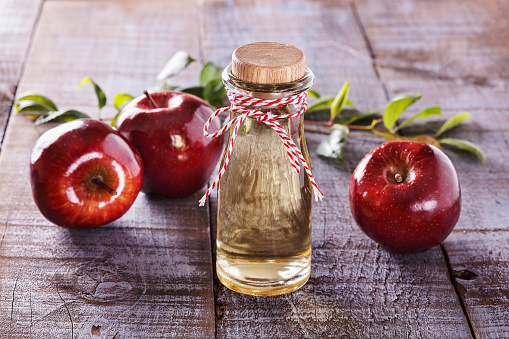 As a young adult I suffered from acne—I tried nearly everything to treat it. My family doctor recommended the popular oral retinoid isotretinoin. The unfortunate part is I experienced adverse side effects from that drug. For instance, I often had trouble concentrating and I woke up frequently throughout the night.
As a young adult I suffered from acne—I tried nearly everything to treat it. My family doctor recommended the popular oral retinoid isotretinoin. The unfortunate part is I experienced adverse side effects from that drug. For instance, I often had trouble concentrating and I woke up frequently throughout the night.
I wasn’t alone. Acne affects nearly 50 million Americans. Approximately 20% of the adult population and the majority of young people between the ages of 12 and 24 suffer from acne.
At the time, my doctor also provided me with benzoyl peroxide skin cream; however, it caused my skin to become extremely dry, irritated, itchy, and red. Other common side effects with benzoyl peroxide include hives, breathing difficulties, excessive burning pains, and chest tightness.
Similar side effects are common with other acne treatments such as salicylic acid, azelaic acid, and topical retinoid drugs, like tazarotene, adapalene, and tretinoin. The problem with many topical acne creams is that once you stop using them, the acne will likely resurface, and you’re left wondering what happened. The fact is topical creams, like benzoyl peroxide, can often have symptoms that are worse than the acne itself!
Apple Cider Vinegar for Acne
Acne is often a sign of greater issues going on in the body. Some of the root causes associated with acne on chest, face include emotional stress, food sensitivities, candida, or poor digestion. All of these issues can lead to a toxic body and nutrient deficiencies.
Like I said earlier, topical acne treatments will only help with the immediate breakouts. That means acne skin creams, even the natural ones, are not a permanent solution. It doesn’t mean that you can’t treat acne naturally in combination with healing the root causes of the problem.
Let me introduce you to apple cider vinegar. We’ll call it ACV for short. It is more than just an ingredient for salad dressing. ACV is thought to be a folk remedy for everything from colds, the flu, and yes, even acne. (Hey, it sure helped treat mine!)
How Apple Cider Vinegar Acne Treatments Works
ACV benefits acne patients in several ways. It has antiseptic, antiviral, antifungal, and antibacterial properties that are effective in the prevention of acne and other skin infections. As a result, the acid in the ACV is thought to balance skin pH, remove bacteria in the skin, and absorb the excess oil on the skin. The beta carotene in ACV is also helpful for skin health.
There are a few steps you can take for an effective apple cider vinegar acne treatment.
Keep in mind that not every apple cider vinegar is the same. You want to look for ACV that is unpasteurized, raw, unfiltered, and organic. The most effective acne-fighting ACV treatments contain a combination of enzymes, good bacteria, and proteins. That is why ACV has a brown cobweb-like substance floating at the bottom.
The next step is creating the perfect toner for your skin:
- Start with one tablespoon of ACV.
- Dilute the ACV with pure filtered water. The ACV/water formula should contain one part ACV and two or three parts water. If your skin is sensitive, it may be helpful to add a little more water.
- Now, your ACV acne-busting toner is ready to use. Put some onto a cotton ball or pad, and apply to the affected areas of your skin.
What Are Other ACV Benefits?
ACV benefits include lowering blood sugar, treating bad breath, controlling candida and yeast infections, and killing potential cancer cells. Apple cider vinegar may help with digestive problems like indigestion, constipation, or diarrhea. It may also be used as an effective sunscreen. Research shows that ACV may reduce possible risk factors associated with heart disease, including high triglycerides, high cholesterol, and hypertension. ACV may also complement a healthy weight loss regimen.
Final Thoughts: Other Things to Consider
ACV is a great way to treat acne naturally; however, it is important to note, ACV is still just a topical treatment. In other words, you must use more than ACV to rid your skin of acne for good! What precautionary measures should also be considered?
For starters, your diet should be clean. Processed, sugary, greasy, and fatty foods all seem to contribute to acne problems. Keep them out of the diet. Eliminate dairy and refined carbohydrates, like breads, pastas, and cereals. What should you eat? It is essential to increase your fiber intake, and increase your intake of low-glycemic fruits, vegetables, and non-gluten grains like quinoa, buckwheat, amaranth, and millet. A low glycemic diet is necessary since too much insulin can assist in triggering inflammation and clogged pores. Stay well-hydrated by drinking at least eight glasses of water daily.
Treat acne naturally with face cleansers, like tea tree oil, lavender essential oil, or a calendula facial wash. You can reduce acne breakouts with key nutrients, such as zinc, chromium picolinate, potassium, selenium, vitamin A (retinol), vitamin B complex (especially B6), vitamin C, vitamin D3, vitamin E, and essential fatty acids like flaxseed oil and fish oil.
Related reading :
Sources:
Murray, M., et al, The Encyclopedia of Natural Medicine: Third Edition (New York: First Atria Paperback, 2012), 245-252.
Scime, E., “How I Cured My Acne With Apple Cider Vinegar,” MindBodyGreen web site, April 10, 2014; http://www.mindbodygreen.com/0-13304/how-i-cured-my-acne-with-apple-cider-vinegar.html.
“Apple Cider Vinegar for Acne,” EarthClinic web site; http://www.earthclinic.com/cures/apple-cider-vinegar-acne-treatment.html, last accessed July 28, 2015.
“Acne – Medications,” WebMD web site; http://www.webmd.com/skin-problems-and-treatments/acne/acne-vulgaris-medications, last accessed July 28, 2015.
“Acne,” American Academy of Dermatology web site; https://www.aad.org/media-resources/stats-and-facts/conditions/acne, last accessed July 28, 2015.
“What Is Acne?” National Institute of Arthritis and Musculoskeletal and Skin Diseases web site, November 2014; http://www.niams.nih.gov/health_info/acne/acne_ff.asp.
